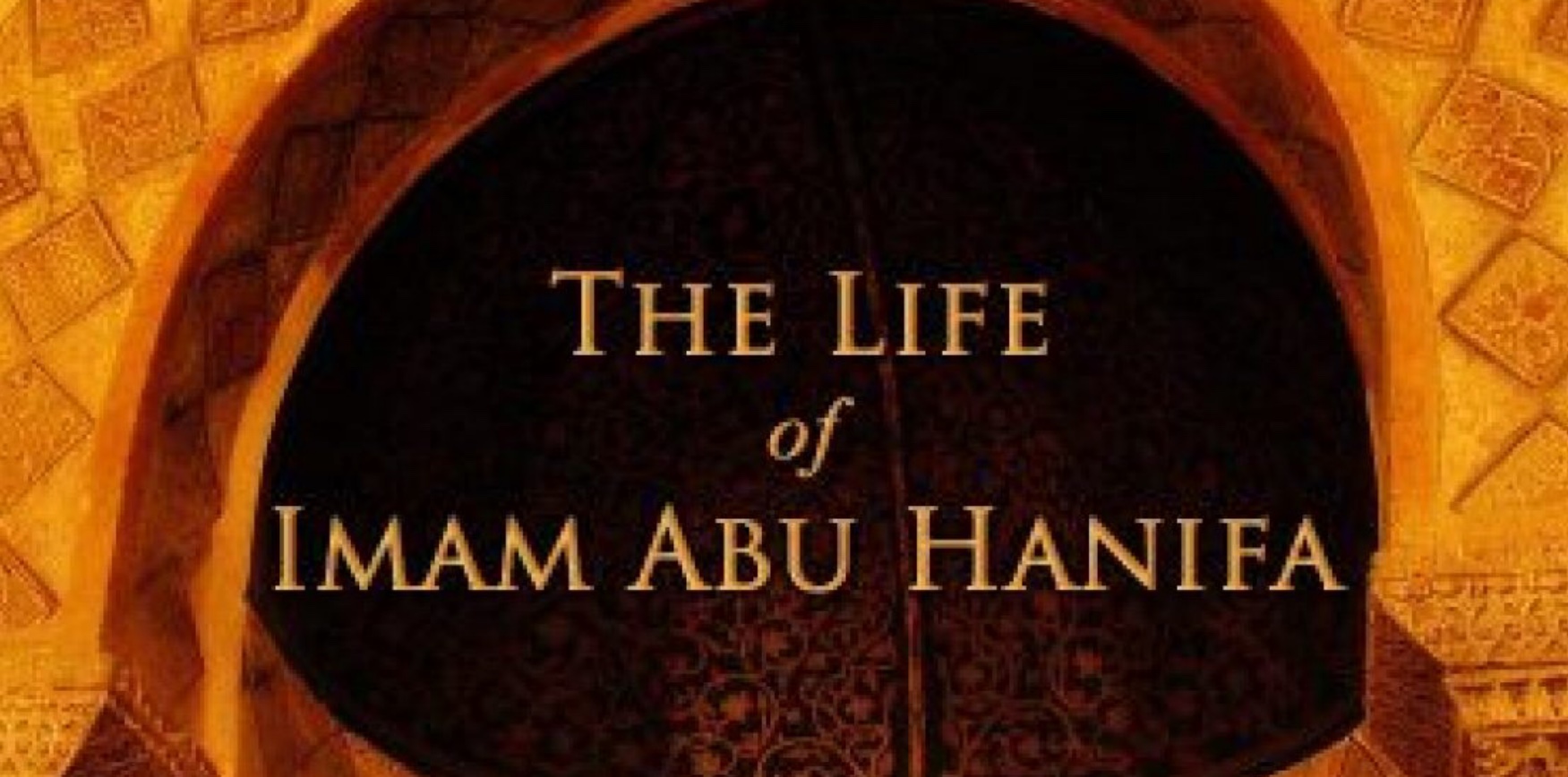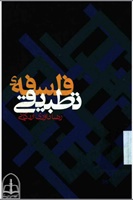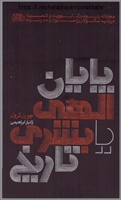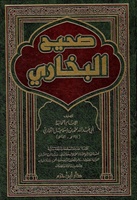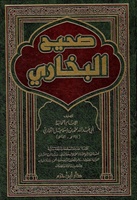

فَأَقِمْ وَجْهَكَ لِلدِّينِ حَنِيفًا… (روم، ٣٠)
پس روى خود را متوجه آئين خالص پروردگار كن !Life of Imam Abu Hanifa(RA)
Life of Imam Abu Hanifa(RA)
Islam is the Religion of Muslims but sadly we fight in the name of Madhab. Have we tried to study the life and teachings of our Imams?All the four Imams were righteous and had an Unmatched Personality and as a Muslim,we should respect all the Imams.Recently I Completed Reading the Biography of all 4 Imams .The life of Imam Abu Hanifa(RA) has left deep impact On Me.It has made me realise that trials are a Part of life.All Prophets,all Imams and all Anbiyas had to undergo a tough trial.The life of Imam Abu Hanifa was such that when he died,50,000 People read his namaz of Zanaza and this continued till 20 days.His life was full of dhikr but the story of his death gave me goosebumps.It gave me a lesson that Allah test his beloved servants in the manner he likes.In all circumstances and in face of all trials,We shouldn’t stop developing closeness with Allah.It will be then,We would Succeed as a true believer.
Ref :Excerpt has been taken from the book Mirat al-ka’inat : “Al-Imam al-azam Abu Hanifa (Rahimahu Allahu Ta’ala)
Who Was Imam Abu Hanifa(RA)
Imam Abu Hanifa(RA) is the light of the Ummah. He is the founder of the Hanafi Madhab.Today, more than half of the Muslims on the earth and most of the Ahl as- Sunnah perform their ‘ibaadah according to the Hanafi Madhab.
Parents of Imam Abu Hanifa:
The book Qamoos al-alam states: Al-Imam al-azam Abu Hanifa’s name was Numan. His father’s name was Thabit. His grandfather’s name was Numan, too. He was the first of the four great imams of the Ahl as-Sunnah Wal Jama’ah. ‘Imam’ means ‘profoundly learned scholar.’ He was one of the main pillars of the brilliant religion of Muhammad (Sallallahu Alaihi Wa Sallam).
Mention of Imam Abu Hanifa in hadiths:
A hadith ash-Sharif, which al-Imam al-Harizmi reported from Abu Hurairah (Radi-Allahu ‘anhu) through isnaad muttasil (an uninterrupted chain of reporters), states:”Among my Ummah, there will come a man called Abu Hanifa. On the Day of Resurrection, he will be the light of my Ummah.” Another hadith ash-Sharif states: “A man named Numan ibn Habit and called Abu Hanifa will appear and will revive Allah ta’ala’s Religion and my Sunnah.”
Imam Abu Hanifa (RA) as a Person:
“Ibn al-Mubarak narrates, ‘I have never seen a man commanding so much respect in his gathering, and nor more beautiful in manners and gentleness than Abu Hanifah…’
His Life:
He performed morning prayer in a mosque and answered his disciples’ questions until noon every day. After noon prayer, he taught his disciples again until night prayer. Then he would go home and, after resting for a while, return to the mosque and worship until morning prayer. Mis’ar ibn Kadam al-Kufi, one of the Salaf as-saliheen, who passed away in 115 (733 A.D.), and many other great people reported this fact.
“Yahya ibn ‘Abd al-Hamid al-Himmani narrates from his father that he remained with Abu Hanifah for six months. He said, ‘I never saw him offer the morning prayer except with the wudu of the ‘Isha of the previous night. He would complete the Qur’an every night at dawn…’
Livelihood:
He earned his living in a halaal way by trading. He sent goods to other places and with his earnings he met the needs of his disciples. He spent much for his household and gave an equal amount as alms to the poor.
His respect for his Parents:
Moreover, every Friday he distributed twenty gold coins to the poor for his parents’ souls.
His respect for his Teachers:
He did not stretch his legs towards his teacher Hammad’s (Rahimahu Allahu Ta’ala) house, though he lived at a distance of seven streets away.
His stand with truth:
Once he found out that one of his partners had sold a large amount of goods incompatibly with Islam. He distributed all the ninety thousand aqchas earned to the poor, not taking one penny of it.
After brigands had raided the villages of Kufa and had stolen sheep, he, thinking that these stolen sheep might be slaughtered and sold in the town, did not eat mutton for seven years, for he knew that a sheep lived seven years at the longest. He abstained from the haraam to that degree. He observed Islam in his every action.
His Prayers:
Abu asam al nabeil is of the opinio that Imam saheb was called peg due to his steadfasness in prayer.(ibid vol 13)
“Bishr ibn al-Walid narrates from Qadi Abu Yusuf who said, ‘While I was walking with Abu Hanifah I heard a man saying to another, “This is Abu Hanifah, he does not sleep at night.” So Abu Hanifah said, “I swear by Allah, it is not spoken of me that which I have not done.” He used to keep awake the night in prayer, supplication and du‘a.’
His Hajj:
He performed hajj fifty-five times. During the last one, he went into the Ka’bah, performed a prayer of two rak’ah and recited the whole Qur’an al-karim during the prayer. Then, weeping, he invoked, “O my Allahu ta’ala! I have not been able to worship Thee in a manner worthy of Thee. Yet I have understood very well that Thou cannot be comprehended through intelligence. For this understanding of mine, please forgive the defects in my service! At that moment a voice was heard, “O Abu Hanifa! You have acknowledged me very well and have served me beautifully. I have forgiven you and those who will be in your Madhhab and follow you until the end of the world.”
His relation with Quran:
Ibn Ishaq al-Samarqandi narrates from Qadi Abu Yusuf who said, ‘Abu Hanifah used to complete the Qur’an every night in one rak‘ah.’
“It has been narrated through two chains that Abu Hanifah recited the entire Qur’an in one rak‘ah…
His Fasts:
Al-Imam al-azam had so much taqwa that for thirty years he fasted every day [except the five days of a year on which it is haraam to fast].
His Salah:
He often read the whole Qur’an al-karim in one rak’ah or two. And sometimes, during salaat or outside it, he read an ayah describing Heaven and Hell over and over again and sobbed and lamented.Those who heard him pitied him. Among the Ummah of Muhammad (‘alaihi ‘s-salam), reciting the whole Qur’an al-karim in a single rak’ah of salaat fell to the lot of only ‘Uthman ibn ‘Affan, Tamim ad-Daari, Sad ibn Jubair and al-Imam al-azam Abu Hanifa.
“Sharik narrates, ‘Abu Hanifah is someone who would remain quiet for a long time and was someone of great intelligence.’ Abu ‘Asim al-Nabil said, ‘Abu Hanifah would be calledal-watd (the pole) due to performing so many salah.’
His Lifestyle:
He did not accept any presents from anyone. He wore clothes like those of the poor. Yet at times, in order to exhibit the blessings of Allahu ta’ala, he wore very valuable clothes.
He talked little and thought much. He discussed some religious matters with his disciples. One night, while leaving the mosque immediately after performing the night prayer in jama’ah, he began to talk with his disciple Zufar on some subject. One of his feet was inside the mosque and the other was outside. The conversation continued until the morning adhan. Then, without taking the other step out, he went back in for the morning prayer.
Because Hazrat ‘Ali (Radi-Allahu ‘anhu) had said, “It is permissible to have a personal allowance of up to four thousand dirhams,” he distributed to the poor what was more than four thousand dirhams of his earnings.
Trials and Death of Imam Abu Hanifa (RA)
The Khalifah Mansoor revered the Imam very much. He presented him ten thousand aqchas and a jariyah. The Imam did not accept them. At that time one aqcha was worth one dirham of silver. In 145 A.H., Ibrahim ibn ‘Abdullah ibn Hasan ibn ‘Ali was recruiting men in order to help his brother Muhammad (rahmat-Allahi ta’ala ‘alaihim ajmain), who had proclaimed himself the Khalifah in al-Madinat al-munawwarah. When he came to Kufa, it was rumored that Abu Hanifa was helping him. Mansoor heard this and had the Imam taken from Kufa to Baghdad. He told him to tell everybody that Mansoor was rightfully the Khalifah. He offered him the presidency of the Supreme Court of Appeal as recompense. He imposed on him very much. The Imam did not accept it. Mansoor imprisoned him and had him thrashed with a stick thirty strokes. His blessed feet bled. Mansoor repented and sent him thirty thousand aqchas, only to be refused again. He was imprisoned again and thrashed ten strokes more every day.
According to some report, on the eleventh day, for fear that the people might rebel, he was forced to lie down on his back and poisonous sherbet (a sweet fruit drink) was poured into his mouth. As he was about to die, he prostrated (sajdah).
Janazah of Imam Abu Hanifa(RA)
Some fifty thousand people performed janazah salaat for him. Because of the enormous crowd, it was performed with difficulty and finished not before the late afternoon prayer.
For twenty days many people came to his tomb and performed janazah salaat for him near his tomb.
He had seven hundred and thirty disciples. Each of them was famed for his virtue and pious deeds. Many of them became Qadis or Muftis. His son Hammad (Rahimahu Allahu Ta’ala) was one of his notable disciples.
Such was Imam Abu Hanifa.May Allah bless his Soul and help We Muslims to take lessons from his life.
بحث در مورد'Life of Imam Abu Hanifa(RA)'
نظریات خود را بنوسید
نظریات خود را باره این مقاله با ما شریک کنید

